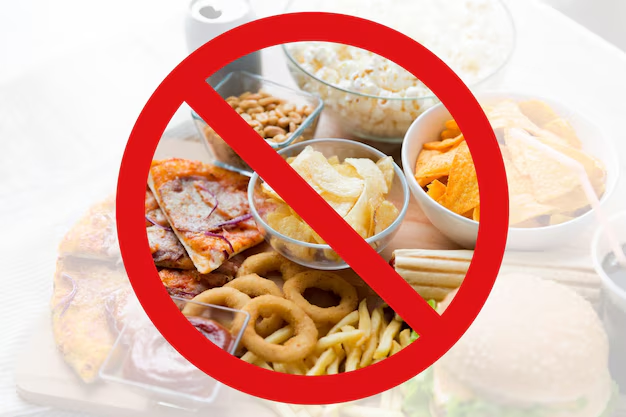Your 20s and 30s are key years for establishing habits that will influence your health and well-being for years to come. It’s during this time that many people lay the foundation for their long-term lifestyle. The choices you make now can have a significant impact on how you feel and look in the future.
While career, relationships, and social life often take center stage, it’s crucial not to overlook your health. Implementing small, sustainable changes in your routine can boost your overall wellness and set you up for long-term success.
In this article, we’ll cover 10 essential health rules that can help you thrive in your 20s and 30s. These health rules are designed to be practical, easy to follow, and focus on long-term benefits that support both your present and future well-being.
Prioritize Protein in Every Meal

Protein is often linked to muscle building, but its benefits extend far beyond fitness goals. It’s a vital macronutrient that supports tissue repair, immune function, and hormone production. In your 20s and 30s, when your body is still rapidly building and repairing tissues, ensuring you get enough protein is essential for optimal function.
As you age, protein continues to play a crucial role in maintaining muscle mass, especially during periods of physical activity. Without sufficient protein, your body may struggle with recovery and overall performance.
One of the key health rules to follow in your 20s and 30s is prioritizing protein intake. By doing so, you support tissue repair, immune health, and maintain a balanced hormonal system, all crucial for long-term well-being.
Why You Need Protein:
Muscle Maintenance and Growth: As you age, your muscle mass naturally decreases. Consuming protein regularly helps slow down muscle loss and promotes muscle repair and growth, especially if you’re active.
Metabolism Boost: Protein has a higher thermic effect than fats or carbohydrates, meaning your body burns more calories digesting it. This can help with weight management.
Satiety: Protein helps keep you full, which can prevent overeating and support healthy weight management.
How to Include Protein:
Aim for about 20–30 grams of protein per meal, depending on your activity level.
Include protein-rich foods like eggs, lean meats, fish, legumes, tofu, and dairy in your meals.
Don’t skip breakfast—try eggs, Greek yogurt, or a protein smoothie to start your day strong.
Train Legs—Don’t Skip Leg Day
When it comes to strength training, it’s common to focus on upper-body exercises, especially if aesthetics are a priority. However, neglecting leg day can have negative consequences for your overall fitness.
Leg exercises are essential for building strength and balance in your lower body, which supports functional movement and overall stability. Skipping leg workouts can lead to muscle imbalances, increasing the risk of injury.
One of the key health rules to follow is to incorporate leg exercises into your routine regularly. Not only will it improve your strength and endurance, but it also promotes better posture and boosts metabolism. Ensuring a balanced workout plan is crucial for long-term fitness and injury prevention.
Why Leg Training is Critical:
Muscle Mass and Metabolism: The legs contain some of the largest muscles in the body, including the quads, hamstrings, and glutes. Training them boosts overall muscle mass, which in turn increases your metabolism.
Functional Strength: Strong legs help with basic, everyday activities like walking, standing, and climbing stairs. Strong legs are also crucial for overall body stability and injury prevention.
Balance and Posture: Leg workouts help strengthen your core and improve posture, which is vital as you enter your 30s and beyond.
Effective Leg Exercises:
Squats: A great compound movement that targets quads, hamstrings, and glutes.
Lunges: Great for building leg strength and improving balance.
Deadlifts: A full-body exercise that also heavily involves the legs.
Leg Press: A machine-based exercise that isolates the leg muscles.
Make leg training a regular part of your workout routine, ideally two to three times per week.
Fix Your Posture Early

In your 20s and 30s, poor posture habits can easily develop, especially with desk jobs, excessive screen time, and improper lifting techniques. These habits can gradually take a toll on your body, leading to discomfort and long-term health issues.
Over time, neglecting proper posture can result in chronic pain, affecting areas such as the neck, back, and shoulders. Conditions like scoliosis, neck strain, and herniated discs may develop if poor posture is not corrected.
One of the important health rules to follow is being mindful of your posture throughout the day. Incorporating posture-improving exercises, adjusting your workspace, and practicing proper lifting techniques can help prevent these long-term issues and support overall spinal health.
Why Posture Matters:
Prevents Back and Neck Pain: Maintaining proper posture helps reduce strain on the spine and muscles.
Improves Breathing: Proper posture allows for better lung expansion, which leads to more efficient breathing.
Boosts Confidence: Standing and sitting up straight can also make you look taller and more confident.
Simple Posture Tips:
Sit with your back straight and shoulders relaxed but not slumped. Your ears should be over your shoulders, and your feet flat on the ground.
Adjust your workspace: Ensure that your computer monitor is at eye level and your chair supports the natural curve of your spine.
Stand tall: Avoid slouching. Imagine a string pulling your head upwards to align your spine.
Strengthen your core: A strong core supports good posture, so focus on exercises that target your abdominals and lower back muscles.
Stay Consistent, Not Perfect
It’s common to fall into the trap of all-or-nothing thinking when it comes to health. You might think that missing a workout or indulging in unhealthy food means you’ve “blown it” and should give up altogether.
This mindset can create unnecessary frustration and lead to a cycle of yo-yo habits. It’s easy to get discouraged and lose sight of long-term progress when you focus only on perfection.
One of the essential health rules to follow is embracing balance and flexibility. Missing a workout or enjoying a treat doesn’t mean failure. Instead of aiming for perfection, focus on consistent, sustainable habits that support your overall well-being in the long run.
Why Consistency is Key:
Sustainable Progress: Health is a long game, and consistent effort yields better results than trying to be perfect.
Avoids Stress and Burnout: Perfectionism can lead to unnecessary stress, which can, ironically, hinder progress.
Builds Healthy Habits: Small, consistent actions compound over time, leading to lasting lifestyle changes.
How to Be Consistent:
Set realistic goals and don’t expect perfection. If you miss a workout, get back on track the next day.
Focus on creating sustainable habits, like a regular sleep routine or meal prep, rather than extreme measures.
Track progress in small ways, like logging workouts or journaling meals, to stay motivated.
Build Healthy Friendships That Support Your Lifestyle

The people you surround yourself with can significantly impact your health habits. Whether it’s your friends, family, or colleagues, their attitudes and behaviors can influence your own choices.
When you spend time with individuals who prioritize health and wellness, it becomes easier to adopt similar habits. Positive influences can encourage you to make healthier food choices, stay active, and take better care of your well-being.
One of the key health rules is to surround yourself with people who support your health goals. This can create a motivating environment, helping you stay on track and make long-lasting improvements to your lifestyle.
Why Healthy Friendships Matter:
Accountability: Healthy friends can encourage you to stick to your goals, whether it’s working out together or avoiding unhealthy habits.
Mental Well-Being: Positive, supportive friendships contribute to emotional well-being and reduce stress.
Motivation: Being around others who have similar health values can inspire you to make better choices.
How to Build Supportive Friendships:
Spend time with people who motivate you to be your best self and encourage healthy habits.
Set boundaries with friends who encourage unhealthy behaviors or habits.
Join groups or communities that align with your fitness and health goals, like fitness classes, running groups, or wellness communities.
Build a Solid Sleep Routine
In your 20s and 30s, it’s easy to sacrifice sleep for work, socializing, or entertainment. However, sleep is essential for both physical and mental well-being, and skipping it can have serious consequences.
Getting enough quality sleep helps your body repair and recharge, supports brain function, and strengthens the immune system. Without proper rest, you may experience fatigue, decreased productivity, and difficulty focusing.
One of the most important health rules to follow is prioritizing sleep. Aim for 7-9 hours each night to allow your body and mind to function optimally. Establishing a consistent sleep routine will not only improve your overall health but also enhance your daily performance and long-term well-being.
Why Sleep is Essential:
Recovery and Muscle Repair: Sleep is when your body repairs itself. It’s also when muscles grow and recover from workouts.
Brain Function and Mental Clarity: Adequate sleep boosts cognitive function, memory, and decision-making ability.
Emotional Health: Lack of sleep is linked to anxiety, depression, and irritability.
Tips for Better Sleep:
Establish a bedtime routine: Try to go to bed and wake up at the same time each day to regulate your body’s internal clock.
Limit screen time before bed: The blue light from phones and computers can interfere with your ability to fall asleep.
Create a restful environment: Keep your bedroom dark, cool, and quiet for the best sleep quality.
Aim for 7–9 hours of sleep per night, and prioritize rest just as much as you prioritize work and social obligations.
Focus on Strength Over Aesthetics

In your 20s and 30s, it’s tempting to chase aesthetic goals, like achieving a six-pack or a lean physique. While these goals can be motivating, focusing too heavily on appearance can lead to unhealthy habits.
When appearance becomes the primary focus, it may lead to overexercising or restrictive dieting, which can harm both physical and mental health. These habits can result in burnout, nutritional deficiencies, and an unhealthy relationship with food and exercise.
One of the key health rules is to focus on overall wellness rather than just appearance. Prioritizing balanced exercise, nourishing food, and self-care supports long-term health and helps you achieve your goals in a sustainable, healthy way.
Why Strength Matters More Than Aesthetics:
Functional Health: Strength training enhances your functional abilities, like lifting heavy objects, improving balance, and maintaining mobility as you age.
Sustainable Fitness: When you focus on getting stronger rather than achieving a specific look, you’re more likely to stay consistent and avoid burnout.
Overall Health: Strength training is linked to better bone health, improved metabolism, and reduced risk of chronic disease.
How to Build Strength:
Incorporate compound movements like squats, deadlifts, and bench presses that target multiple muscle groups.
Gradually increase the weight or resistance you use in your workouts to challenge your muscles.
Focus on progressive overload, meaning consistently increasing the intensity of your workouts.
Do Annual Full-Body Checkups

In your 20s and 30s, it’s easy to feel invincible, but regular checkups are still crucial for maintaining your health. Even if you feel fine, routine visits to your doctor can help you stay on top of your well-being.
Regular checkups allow your doctor to catch potential health issues early, before they become serious problems. It’s a proactive approach that can prevent complications down the line.
One of the important health rules to follow is scheduling routine checkups, even when you feel healthy. These appointments provide valuable insights into your overall health and allow you to address any concerns before they escalate. Prioritizing checkups is an essential part of long-term health maintenance.
Why Checkups Matter:
Early Detection: Many health issues, such as high blood pressure, diabetes, or high cholesterol, don’t show symptoms until they’re advanced.
Peace of Mind: Regular checkups can give you confidence that you’re on track with your health and can address any concerns early.
Prevention: Checkups often include screenings that can prevent disease, like blood tests, cancer screenings, and vaccinations.
Make sure to schedule a full-body checkup at least once a year, even if you feel healthy. Your doctor can recommend any specific tests based on your medical history and lifestyle.
Master Cooking 5 Healthy Meals
Learning to cook healthy meals is one of the most valuable skills for long-term health. It gives you control over what you’re putting into your body, allowing you to make nutritious choices that support your well-being.
By preparing meals at home, you can avoid the added sugars, unhealthy fats, and preservatives often found in takeout or processed foods. This helps you maintain a balanced diet and improve your overall health.
One of the key health rules to follow is to prioritize home-cooked meals. Not only does this save money by reducing reliance on takeout, but it also ensures you’re fueling your body with fresh, wholesome ingredients. Developing this habit supports a healthier lifestyle in the long run.
Why Cooking is Crucial:
Control Over Ingredients: When you cook your own meals, you know exactly what’s in them, and you can avoid added sugars, unhealthy fats, and preservatives.
Cost-Effective: Cooking at home is usually more affordable than eating out or ordering takeout.
Nutrition: Homemade meals allow you to create nutrient-dense meals that are tailored to your dietary needs.
How to Master Cooking:
Learn a few simple recipes that are healthy and easy to prepare.
Focus on whole, fresh ingredients like vegetables, lean meats, legumes, and whole grains.
Cook in batches and meal prep to save time during the week.
Learn to Say No to Junk

Junk food is easy to find—it’s convenient, affordable, and tempting, especially during busy times in your 20s and 30s. While indulging occasionally may be fine, relying on junk food regularly can negatively affect your health.
Consuming too much junk food can lead to weight gain, low energy levels, and contribute to long-term health issues, such as diabetes and heart disease. These problems can develop slowly but have lasting effects on your well-being.
One of the important health rules is to limit junk food intake and opt for healthier alternatives. By making mindful food choices and focusing on nourishing, whole foods, you can maintain a healthy weight, boost your energy, and reduce the risk of chronic health conditions.
Why Saying No is Important:
Better Health: Junk food is high in empty calories, refined sugars, and unhealthy fats that can damage your metabolism and lead to chronic diseases.
Energy and Mental Clarity: Whole foods provide sustained energy, whereas processed junk food leads to energy crashes and brain fog.
Long-Term Benefits: Avoiding junk food helps you maintain a healthy weight and reduces your risk of developing diet-related diseases.
How to Say No:
Keep healthy snacks on hand to avoid temptation.
Practice mindful eating—pay attention to how you feel before, during, and after eating to help you make better food choices.
Plan meals ahead of time to ensure you’re eating nourishing foods.
Conclusion
In your 20s and 30s, adopting a few essential health rules can set the stage for a vibrant, long-lasting life. These years are foundational for building habits that will positively impact your future health, both physically and mentally. By following these health rules, you’re taking proactive steps to improve your well-being.
Consistency is key when it comes to any health rule—whether it’s eating enough protein, prioritizing sleep, or saying no to junk food. Small, daily efforts add up to lasting benefits that will help you age gracefully and maintain energy, strength, and vitality.
Ultimately, integrating these health rules into your routine is an investment in your future self. It’s about making conscious, sustainable choices now so you can enjoy a lifetime of health, happiness, and well-being. Embrace these simple yet effective health rules, and the payoff will be worth it.
FAQs
- Why is protein so important in your 20s and 30s ?
Protein is essential for muscle repair, immune function, and hormone production. During your 20s and 30s, your body is still building and repairing tissues at a rapid rate, so ensuring you get enough protein in every meal supports overall health, metabolism, and muscle maintenance. - How often should I train my legs ?
It’s recommended to train your legs at least two to three times a week for optimal strength and muscle growth. Leg training boosts metabolism, helps with functional strength, and improves posture. Don’t skip leg day—it’s essential for balanced body strength. - What’s the best way to improve my posture ?
Improving posture involves strengthening your core, adjusting your workspace to maintain a neutral spine, and being mindful of your body’s alignment throughout the day. Focus on exercises like planks, back extensions, and stretches to improve flexibility and posture. - How can I stay consistent with my health habits ?
Staying consistent involves setting realistic, achievable goals, tracking your progress, and creating a routine. Don’t aim for perfection—focus on steady improvement and find ways to make your habits enjoyable so they become second nature. - How do I know when to say no to junk food ?
Learn to listen to your body and recognize when you’re craving junk food due to emotional stress or boredom rather than genuine hunger. Keep healthy snacks on hand and practice mindful eating to make better food choices and avoid the temptation of junk food.


